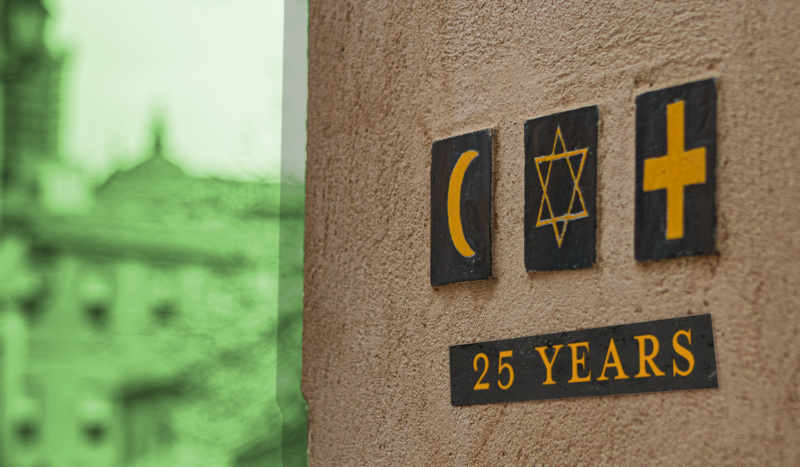
As religious freedom is under attack in many parts of the world, the United States Conference of Catholic Bishops called for greater recognition of religious liberty on the 25th anniversary of the International Religious Freedom Act.
When Congress signed the act into law in 1998, it made religious freedom a central issue in U.S. foreign policy and established two government bodies to monitor and promote religious freedom abroad: the U.S. Commission on International Religious Freedom (USCIRF) and the Office of International Religious Freedom at the Department of State.
But even 25 years after the passage of the International Religious Freedom Act, most people live in countries where religious freedom is not a guarantee.
To mark the 25th anniversary, two USCCB chairmen called on governments across the world to recognize the inherent right to religious freedom.
“As we celebrate the 25th anniversary of the International Religious Freedom Act, let us join with our Holy Father in his prayer ‘that freedom of conscience and freedom of religion will everywhere be recognized and respected; these are fundamental rights because they make us free to contemplate the heaven for which we were created,’” read the joint statement from Cardinal Timothy M. Dolan of New York and Bishop David J. Malloy of Rockford.
“Sadly, 80 percent of the world’s inhabitants live in countries where there are high levels of governmental or societal restrictions on religion, and restrictions have been steadily increasing for several years,” said Dolan, who heads the USCCB Committee for Religious Liberty, and Malloy, who is chairman of the USCCB’s Committee on International Justice and Peace.
The statement comes at a time of heightened persecution for various religious groups. Christians in Nigeria are facing increasing persecution. Just last week, the Diocese of Ilorin announced the murder of Br. Godwin Ezein. During the ongoing conflict in Israel, Jewish people are suffering increased threats and attacks, while anti-Semitism is on the rise internationally.
Dolan and Malloy hearkened back to the Church’s teaching on religious freedom as an inherent right.
“The Catholic Church has long recognized the essential and inviolable nature of religious freedom,” the statement read. “In 1965, Pope St. Paul VI promulgated the Second Vatican Council’s Declaration on Religious Freedom, Dignitatis Humanae, which stated that this right is founded ‘in the very dignity of the human person,’ so that everyone has a right to religious freedom.”
Made public on December 7, 1965, Dignitatis Humanae explored the relationship between church and state and a proper understanding of freedom. It declared that individuals should be guaranteed the right to practice their religious beliefs and actively practice their religion in the public sphere.
“The declaration went on to say governments must protect the rights and safeguard the religious freedom of all their citizens so that ‘no one is to be forced to act in a manner contrary to his own beliefs, whether privately or publicly, within due limits,” said Dolan and Malloy.
To conclude the statement, Dolan and Malloy asked the faithful to participate in Pope Francis’ prayer for religious freedom and peace.

